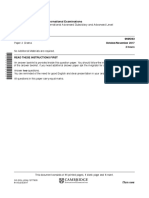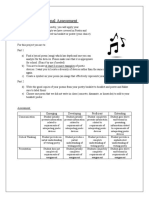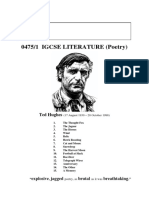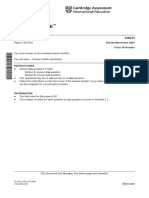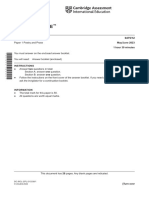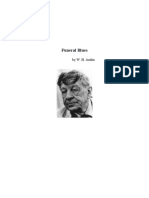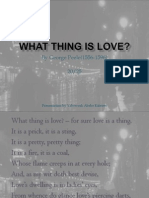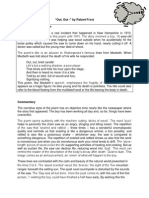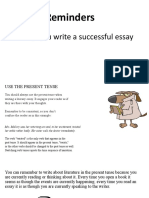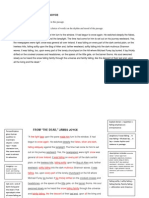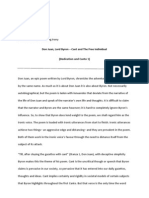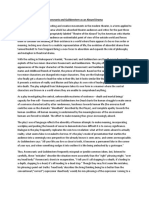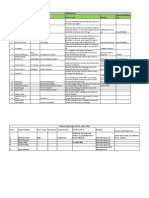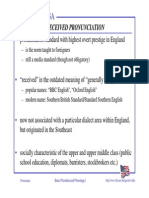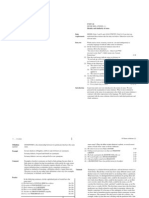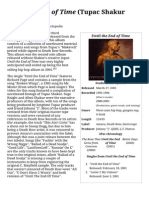0% found this document useful (0 votes)
984 views3 pagesOut Out Questions About The Poem
This document contains questions about the poem "Out, Out" by Robert Frost and asks students to analyze different parts of the poem. The questions probe literary devices, imagery, characters, and themes across five sections of the poem including the boy's death by buzz saw and the reactions it provokes. Key details examined include the ominous portrayal of the saw, the boy's realization of his fate, and the detachment of the observers after witnessing his death.
Uploaded by
isabelle259Copyright
© © All Rights Reserved
We take content rights seriously. If you suspect this is your content, claim it here.
Available Formats
Download as DOCX, PDF, TXT or read online on Scribd
0% found this document useful (0 votes)
984 views3 pagesOut Out Questions About The Poem
This document contains questions about the poem "Out, Out" by Robert Frost and asks students to analyze different parts of the poem. The questions probe literary devices, imagery, characters, and themes across five sections of the poem including the boy's death by buzz saw and the reactions it provokes. Key details examined include the ominous portrayal of the saw, the boy's realization of his fate, and the detachment of the observers after witnessing his death.
Uploaded by
isabelle259Copyright
© © All Rights Reserved
We take content rights seriously. If you suspect this is your content, claim it here.
Available Formats
Download as DOCX, PDF, TXT or read online on Scribd
/ 3

















